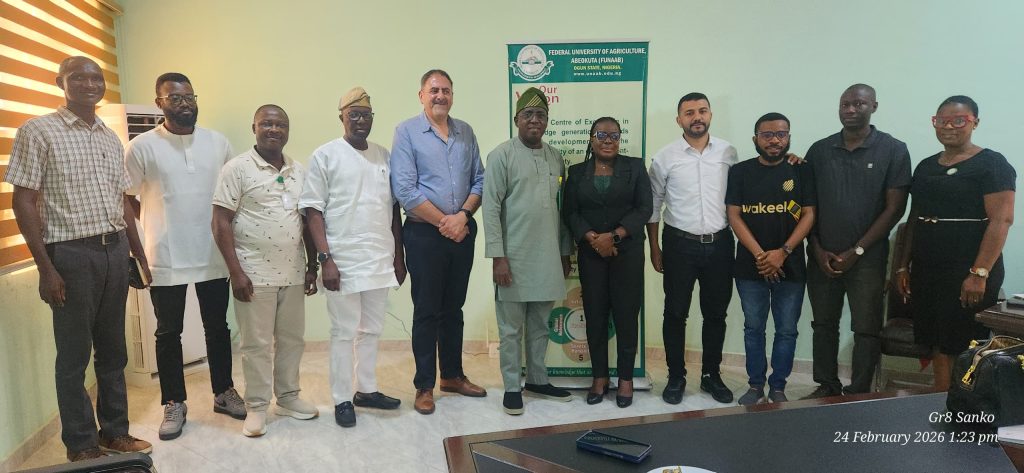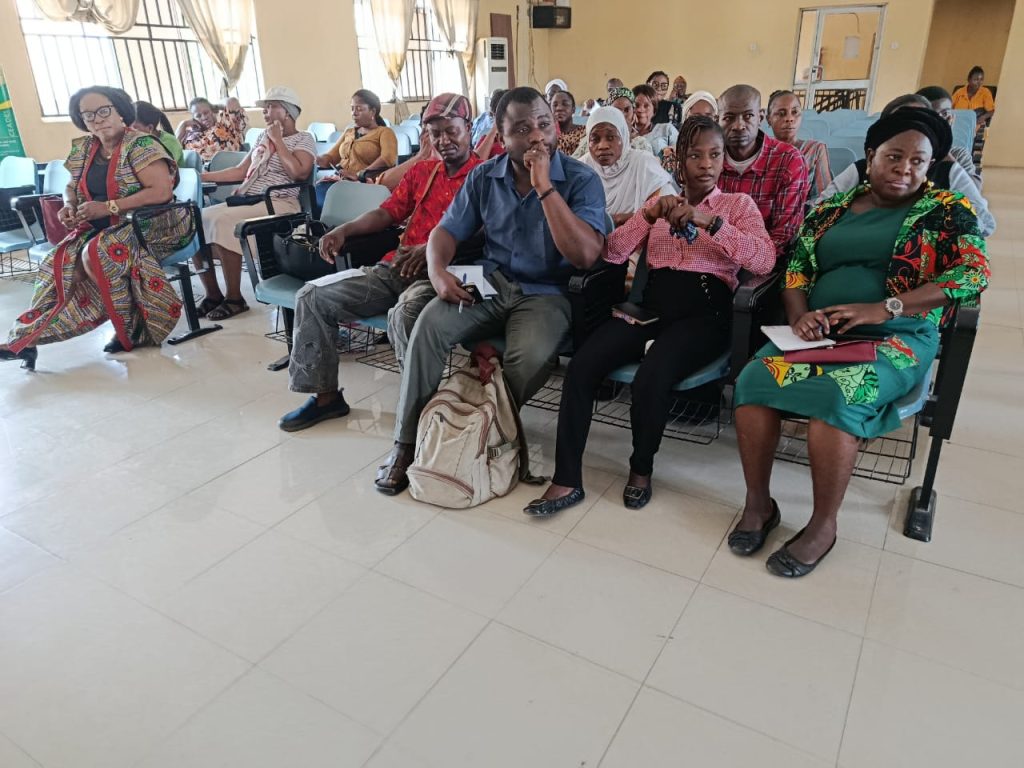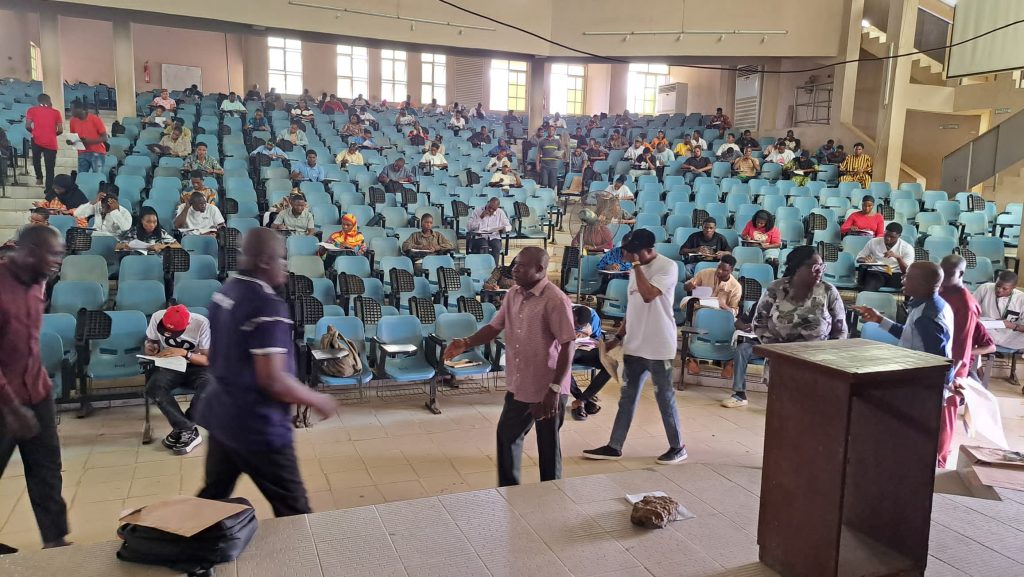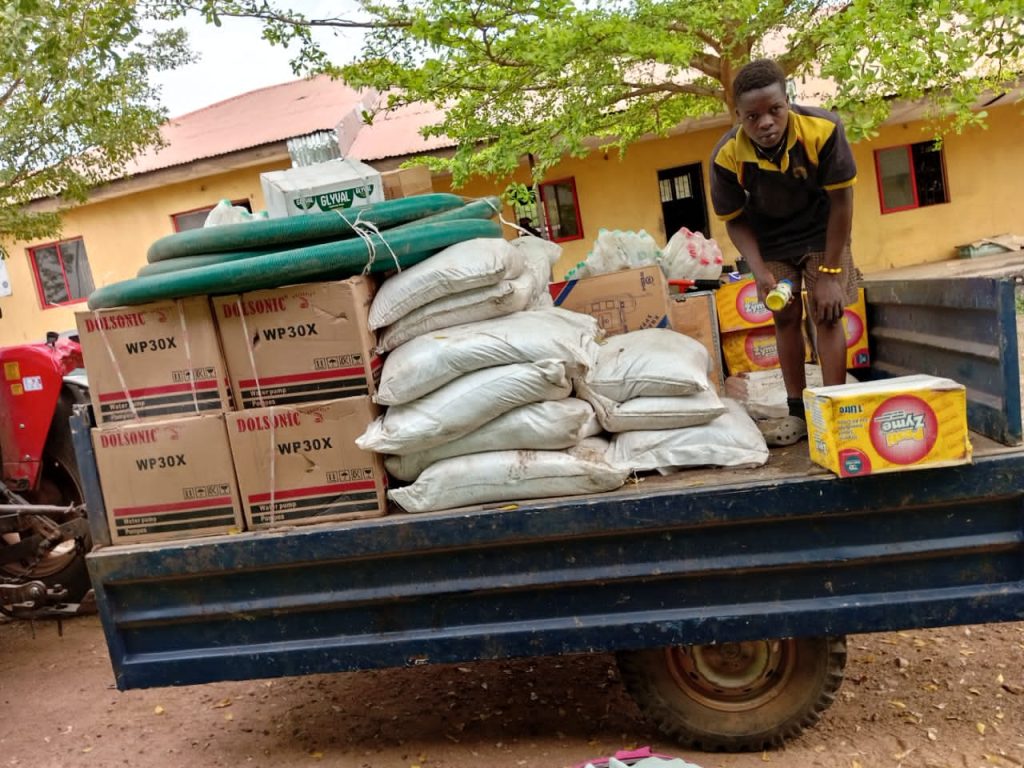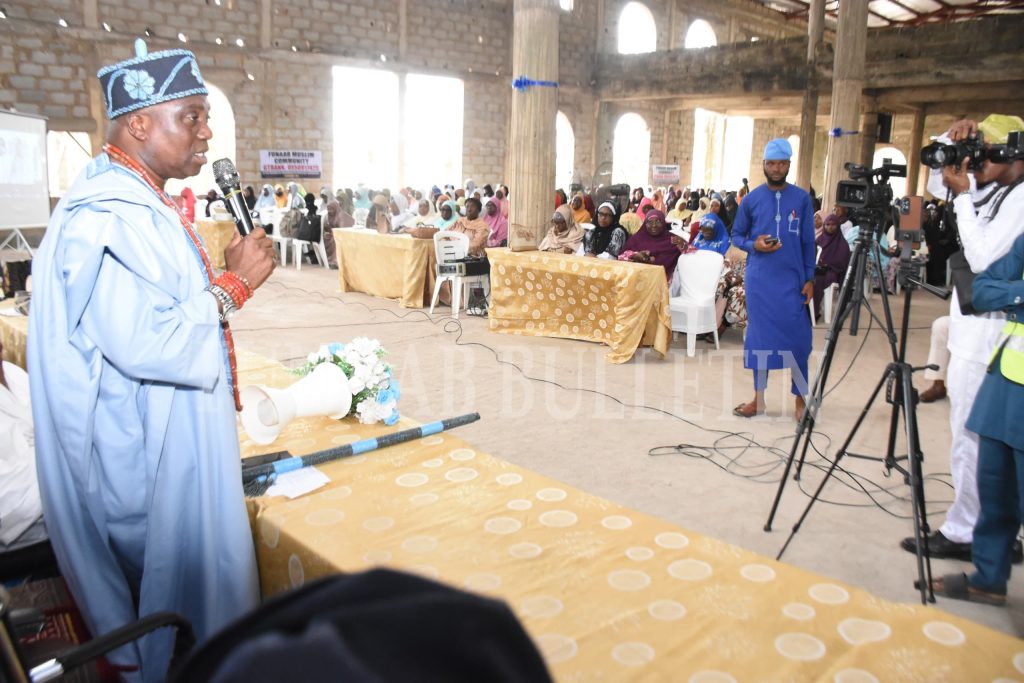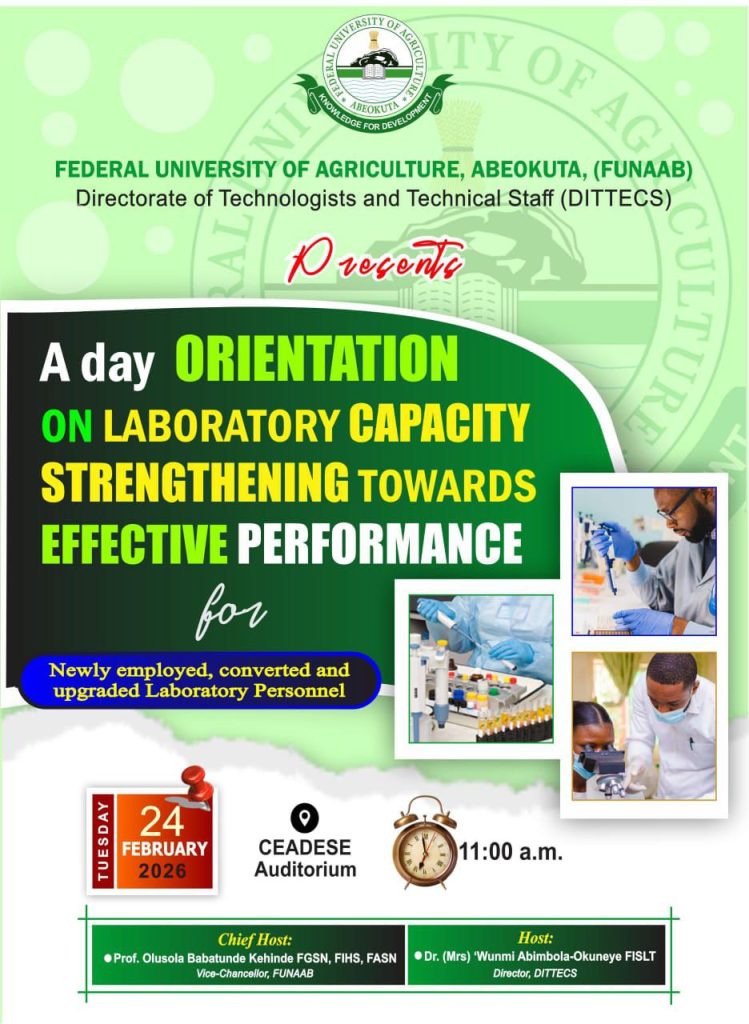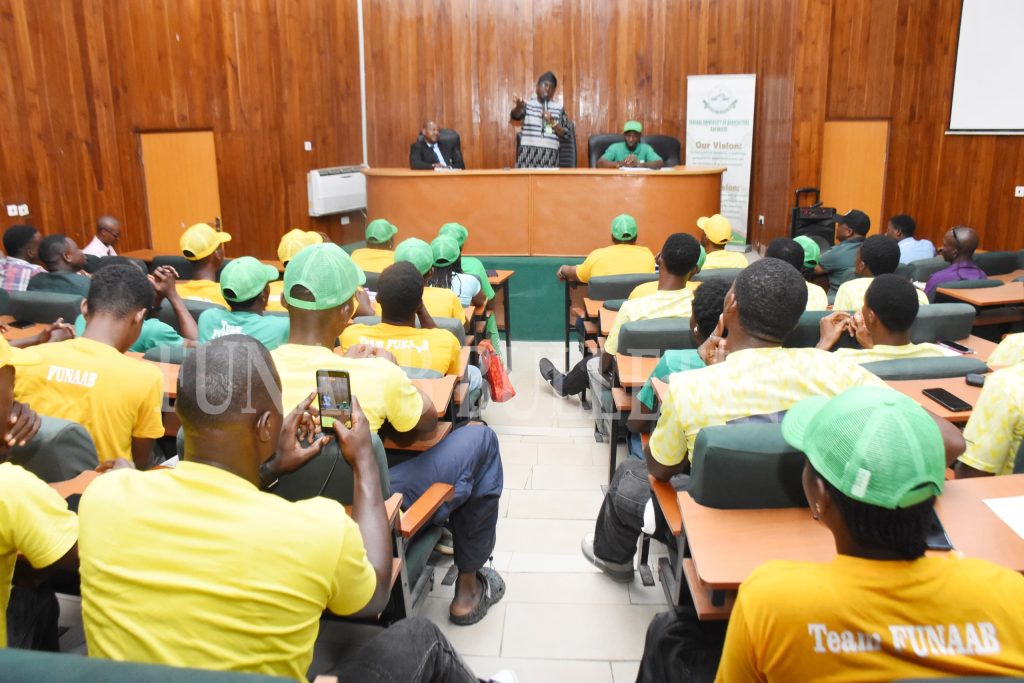Last Updated on January 6, 2022 by FUNAAB
A Prof. of Soil Fertility has disclosed that the use of sustainable soil to prevent soil salinization will ensure sustainable food production through improved soil productivity.
Prof. Christopher Adejuyigbe of the Department of Soil Science and Land Management, College of Plant Science and Crop Production (COPLANT) FUNAAB, made this disclosure while delivering his lecture at the World Soil Day 2021 with the theme “Halt Soil Salinization, Boost Soil Productivity” held at the COPLANT Auditorium, FUNAAB.

According to him, adoption of best management practices in the management of salt affected areas was essential without compromising soil and water quality.
He noted that the key to salt affected soil management centres on assessing, managing and monitoring, adding that the efficiency of management options is monitored and assessed, and modifications are made as cases demand.
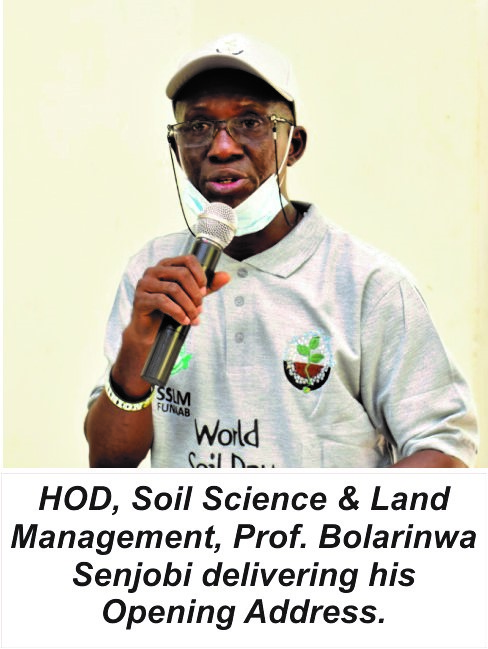
He emphasised that soil as a major component of land and basis for agricultural production, the need for sustainable soil management, mitigation of soil degradation, reclamation and restoration of degraded soils stems from the fact that soil was limited in supply and subjected to competitive alternative uses. Prof. Adejuyigbe said human population with the accompanying need for food, fiber and fuel are on steady increase all over the world and Nigeria in particular. Hence, the need for measures to improve soil productivity and mitigate any process that would further degrade or decrease the soil available for crop production.
In his Goodwill Message, the Vice-chancellor FUNAAB, Prof. Kolawole Salako, reiterated that everybody have responsibility to conserve the soil and the environment at large, saying if not, there will be dire consequence.
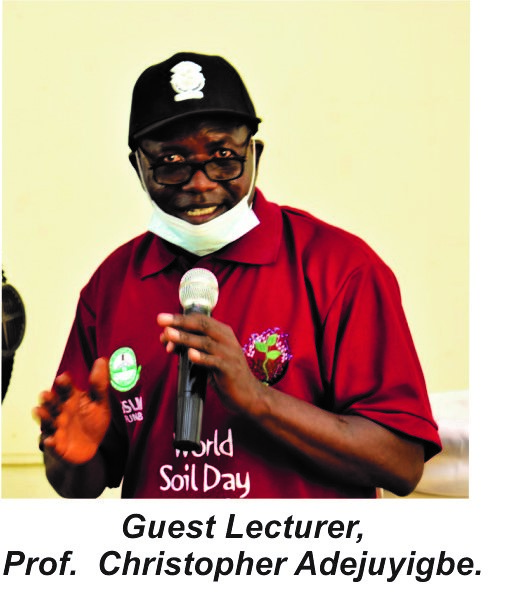
Prof. Salako said soil degradation is not an insurmountable challenge but the challenge is the way people direct their minds towards solving the problem. He noted that there are natural ways of degrading the soil which include; salinization, too much of evaporation, low rainfall but the aesthetic degradation that one can imagine was poor irrigation management in the area where there is no enough rainfall.
In the same vein, the Dean, College of Plant Science and Crop Production (COPLANT), Prof. Jonathan Atungwu, said World Soil Day celebrated on December 5 every year was based on preserving the land, adding that it was a day to commemorate the very earth that feeds, clothes and empowers mankind.
According to him, the theme of this year World Soil Day tagged ‘Halt Soil Salinization, Boost Soil Productivity’ was a fulfilling, and a productive exercise especially at a time when government and international organisations are working endlessly to preserve the environment and ward off the damming effect of earth degradation which are harmful to the survival and longevity of man.
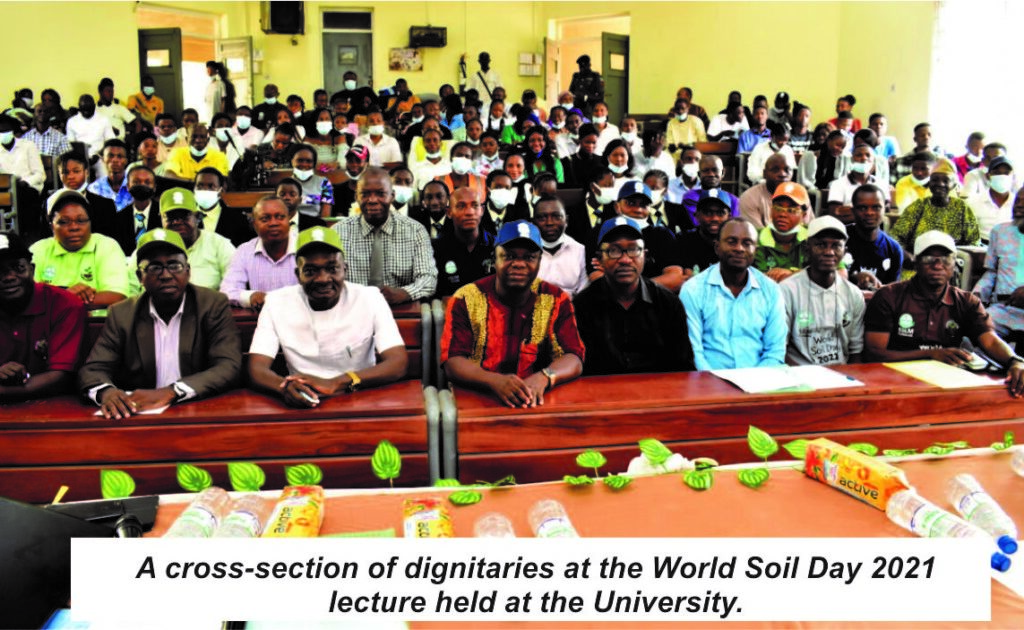
In his Opening Address, the Head of Department, Soil Science and Land Management, Prof. Bolarinwa Senjobi, said that this year World Soil Day is being celebrated at a time that the whole world is in dire need of sustainable measures that will combat the menace of soil salinization globally and ensure healthy soils that will boost agricultural productivity and alleviate food insecurity so as to meet the food and fibre needs of ever increasing growing population.
Prof. Senjobi disclosed that” It is in my conviction that, if we must unleash the full potentials of Agriculture as the much talk about panacea for economic growth and development, then the sustainable and healthy soils com water resources management must be critically looked into. There must be a paradigm shift from inappropriate soil and water management practices to sustainable modern management practices in tandem with the exists in knowledge-propel soil quality approaches”.
He therefore, called on stakeholders in soil management to come with plausible modern ways of mitigating soil salinity adverse effects through Climate Smart Agriculture.


